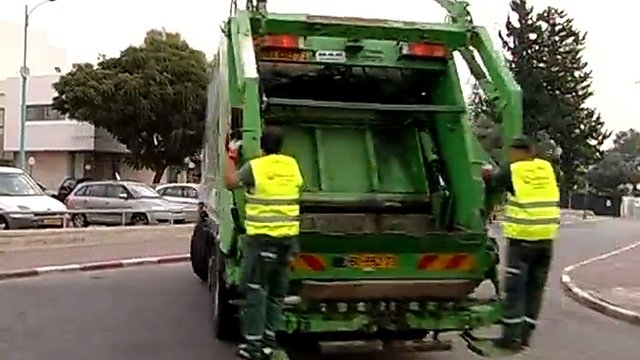In Israel, the pressing issue of waste management has been a longstanding concern, with approximately 80% of the waste ending up buried in the ground. This practice not only poses a significant environmental threat but also has detrimental effects on the air quality, soil, and groundwater. Furthermore, it contributes to the emission of greenhouse gases, exacerbating the global climate crisis. Recognizing the gravity of this situation, the Ministry of Environmental Protection took a significant step in 2018 by launching a comprehensive plan aimed at reversing this trend by 2030.
In recent years, we have witnessed a glimmer of hope on the horizon as the nation began establishing facilities dedicated to the sorting and recycling of household waste. These initiatives mark a pivotal shift towards sustainable waste management practices within Israel.
To comprehend the scale of the challenge, it is essential to understand the staggering statistics associated with waste generation in Israel. On average, each person in Israel produces approximately 1.8 kilograms of waste per day, translating to about 54 kilograms of garbage each month and a substantial 648 kilograms annually. These numbers are further compounded by the fact that Israel generates an estimated six million tons of municipal and commercial waste annually.
אנחנו מפרסמים דוח מסכם של ועדת יישום היערכות מערכות מזון לשינוי אקלים 👈 השרה להגנת הסביבה, עידית סילמן, הציגה את עיקרי הדוח באירוע שרים בנושא מערכות מזון באו"ם.
— המשרד להגנת הסביבה - Environmental Protection (@SvivaMinistry) September 21, 2023
הדוח, בהובלתה של המדענית הראשית של המשרד להגנת הסביבה, פרופ' נגה קרונפלד-שור, מצביע על הפעולות המיידיות וארוכות >> pic.twitter.com/7r8zZLPVme
Delving into the composition of this waste, it becomes apparent that 34% of it consists of food scraps, 24% comprises cardboard and paper, while 18% is constituted by plastics. Additionally, 6% of the waste comprises diapers, with the remaining 18% encompassing garden waste, textiles, construction waste, metals, glass, and various other materials.
Despite these staggering figures, only about 1.4 million tons of waste are currently being transferred for recycling each year, representing a mere 23.5% of the total waste produced. While the Ministry of Environmental Protection has committed substantial resources, allocating over one billion shekels, to support the construction, upgrading, and planning of waste treatment facilities, it has yet to establish interim goals before 2030. The ultimate objective is to achieve an impressive 80% recycling rate by the end of this decade, a goal that, until recently, appeared distant and insurmountable, particularly when compared to the recycling rates in other developed nations.
Nevertheless, progress is being made. Notably, in the Eshkol Regional Council, a state-of-the-art facility is under construction, capable of processing 150,000 tons of organic waste annually. Simultaneously, near Rishon Lezion, the Shapadan complex is being developed to handle 400,000 tons of mixed household waste each year, with a specific focus on converting organic waste into green energy. Both of these facilities are anticipated to commence operations in 2026, marking significant milestones in Israel's waste management landscape. Additionally, two more facilities are in advanced stages of construction and are expected to be fully operational by 2024.
What sets these emerging facilities apart is their commitment to adhering to the strictest environmental standards. They are constructed within enclosed buildings equipped with advanced filtration systems to mitigate any potential odor hazards, thereby ensuring a safe and hygienic work environment for employees. These state-of-the-art facilities represent a significant financial investment, with a construction cost exceeding 125 million NIS. To further incentivize these projects, the Ministry of Environmental Protection has provided a construction grant of 37 million NIS.
בעקבות שריפת ענק: מנהלת מחוז צפון של המשרד להגנת הסביבה, ד"ר סיגל בלומנפלד, הוציאה צו מנהלי למניעה או לצמצום זיהום האוויר לעיריית שפרעם, בגין שריפה באתר פסולת פיראטי בשטחה.
— המשרד להגנת הסביבה - Environmental Protection (@SvivaMinistry) September 18, 2023
בשריפה שאותרה בעקבות סיור שנערך על ידי נציג המשרד באזור התעשייה בעיריית שפרעם, נצפו פליטות עשן מאסיבית >> pic.twitter.com/Y8hrGp0HrX
The waste management process at these facilities involves several crucial steps. Initially, incoming household waste undergoes an automated and controlled separation and sorting process. Following this, recyclable materials, such as various types of plastics, iron, aluminum, and cardboard, are identified and set aside for recycling. Additionally, waste materials with a high energy value are directed to a facility where they are transformed into Refuse Derived Fuel (RDF). RDF serves as an environmentally friendly fuel substitute, offering an alternative to conventional polluting fuels.
Organic waste, on the other hand, is transported to designated treatment sites, ensuring that valuable organic materials are repurposed efficiently. Finally, waste sorting residues are transported to landfills, closing the loop on the waste management process. With all this combined, Israel seems to be well on its way to achieving its ambitious goal of an 80% recycling rate by 2030.


